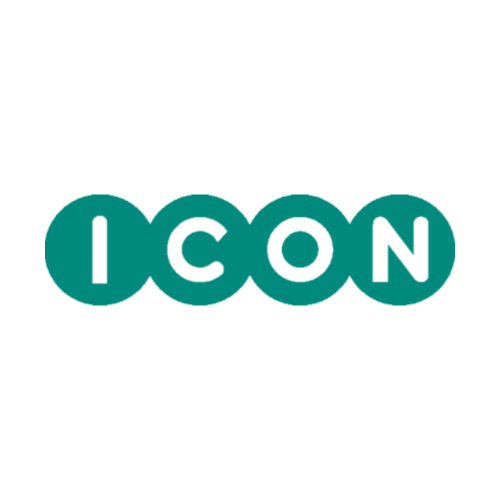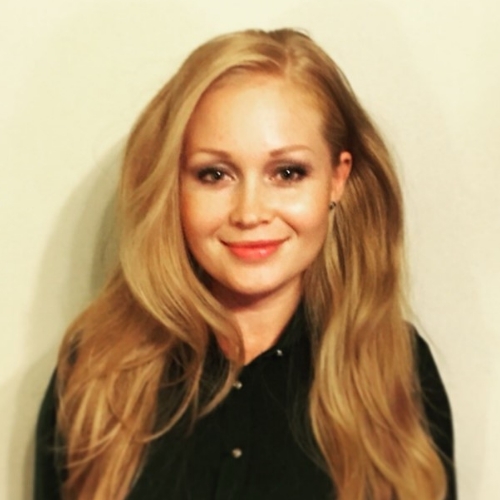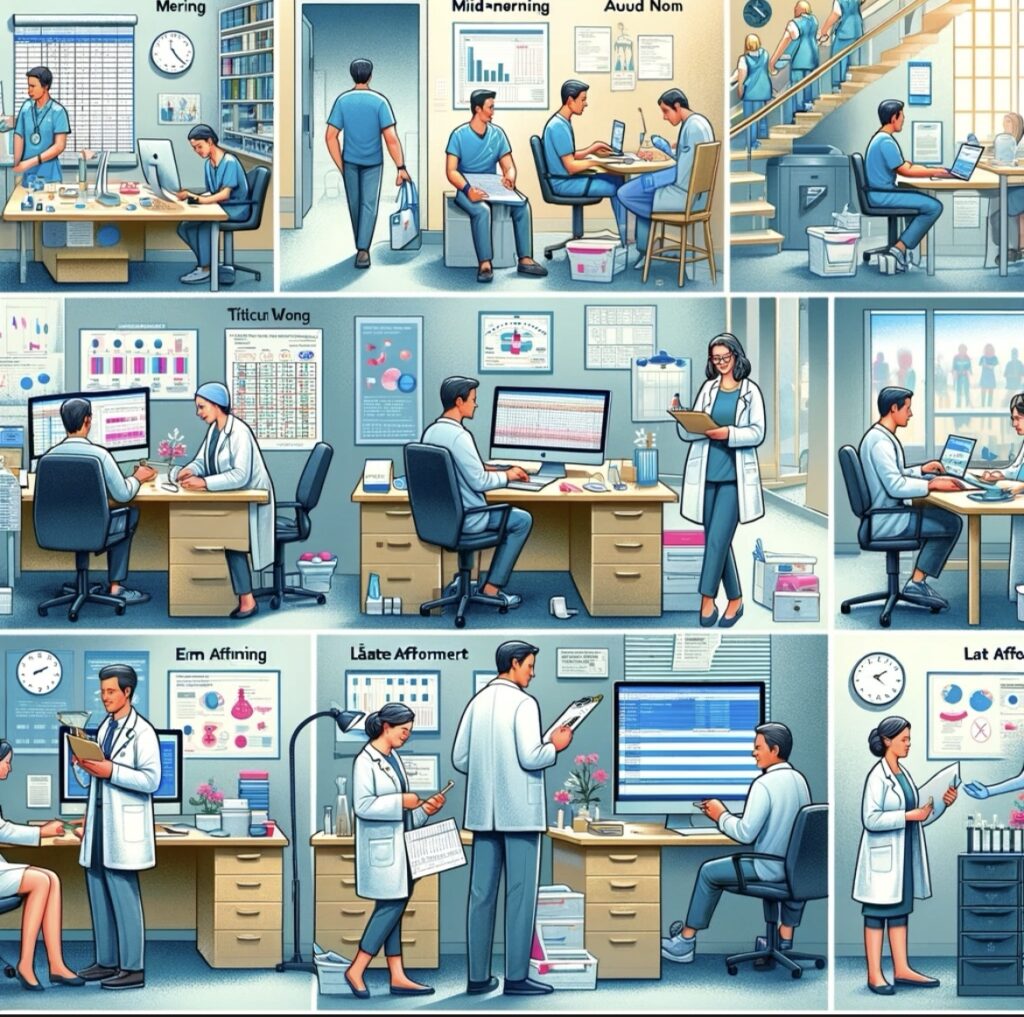.png?v=a28be2019da205084912677d98732051)

The Role of a Clinical Research Coordinator

Clinical research plays a crucial role in advancing medical knowledge and improving patient care. At the heart of every successful clinical research study is a Clinical Research Coordinator (CRC). As a CRC, you serve as the linchpin between researchers, study participants, and regulatory bodies.
In this comprehensive guide, we will explore the responsibilities, qualifications, challenges, and rewards of being a Clinical Research Coordinator. Whether you are considering a career in clinical research or already working in the field, this article provides valuable insights to help you succeed.
Responsibilities of a Clinical Research Coordinator
As a Clinical Research Coordinator, your responsibilities are diverse and demanding. You serve as the primary point of contact for study participants, ensuring their safety and well-being throughout the research process. You are responsible for recruiting and enrolling eligible participants, obtaining informed consent, and collecting accurate data. Additionally, you must adhere to strict regulatory guidelines and Good Clinical Practice ( GCP ) standards to ensure the integrity and validity of the study results.
Monitoring participants' progress, managing adverse events, and maintaining detailed records are also crucial aspects of your role as a CRC. To effectively carry out these responsibilities, strong organizational and communication skills are essential. You must be able to multitask, prioritize, and work well under pressure. Attention to detail is paramount, as any errors or oversights can compromise the validity of the study. As a CRC, you are also expected to stay updated on the latest research protocols and regulatory requirements to ensure compliance and contribute to the successful completion of the study.

Qualifications and Education Required to Become a Clinical Research Coordinator
While specific qualifications may vary depending on the institution or organization, a minimum educational requirement for most Clinical Research Coordinator positions is a bachelor's degree in a relevant field such as life sciences, nursing, or pharmacy. A solid foundation in biological sciences and research methodologies is crucial to understanding the complexities of clinical research. A master's degree in clinical research or a related field can further enhance your qualifications and open up opportunities for career advancement.
Apart from formal education, relevant work experience is highly valued in the field of clinical research. Prior experience in a research setting, such as working as a research assistant or in a healthcare role, can provide valuable insight into the research process and make you a more competitive candidate. Additionally, possessing knowledge of regulatory guidelines, such as the International Council for Harmonisation of Technical Requirements for Pharmaceuticals for Human Use ( ICH-GCP ) guidelines, is advantageous.
Certification Options for Clinical Research Coordinators
While certification is not always mandatory, obtaining a certification as a Clinical Research Coordinator can enhance your professional credibility and increase your job prospects. Several organizations offer certification programs for CRCs, such as the Association of Clinical Research Professionals ( ACRP ) and the Society of Clinical Research Associates ( SoCRA ). To obtain certification, you typically need to meet certain eligibility criteria, which may include a combination of education, work experience, and passing a certification exam.
These certification programs cover a wide range of topics, including research ethics, study design, data management, and regulatory compliance. By obtaining certification, you demonstrate your commitment to maintaining high standards of practice and staying up-to-date with industry best practices.
Tips for Creating an Effective Clinical Research Coordinator Resume
In a competitive job market, a well-crafted resume can make all the difference in securing a Clinical Research Coordinator position. Here are some tips to help you create an effective resume that highlights your skills and qualifications:
1. Start with a compelling summary: Begin your resume with a concise summary that highlights your relevant experience, qualifications, and career goals. This section should grab the attention of potential employers and encourage them to read further.
2. Emphasize your research experience: Highlight your research experience, including any previous roles as a research assistant or involvement in clinical trials. Describe your responsibilities, methodologies used, and any noteworthy achievements.
3. Showcase your knowledge of regulations and guidelines: Demonstrate your familiarity with regulatory guidelines, such as ICH-GCP, and any additional certifications you have obtained. This shows your commitment to ethical research practices and compliance.
4. Highlight your organizational and communication skills: As a CRC, strong organizational and communication skills are crucial. Provide examples of how you have effectively managed multiple tasks, coordinated with various stakeholders, and maintained accurate documentation.
5. Include relevant technical skills: Depending on the specific requirements of the position, include any relevant technical skills such as proficiency in electronic data capture systems, statistical software, or data analysis tools. These skills can set you apart from other candidates.
Remember to tailor your resume to each specific job application, focusing on the skills and qualifications that are most relevant to the position. Proofread your resume carefully to ensure it is error-free and presents you in the best possible light.
Common Interview Questions for Clinical Research Coordinator Positions
Preparing for a job interview is essential to present yourself confidently and effectively. Here are some common interview questions for Clinical Research Coordinator positions, along with tips on how to answer them:
1. Tell us about your experience in clinical research: Be prepared to discuss your previous roles and responsibilities in clinical research, emphasizing your ability to manage study participants, collect accurate data, and ensure compliance with regulatory guidelines.
2. How do you handle challenges in clinical research?: Demonstrate your problem-solving skills by sharing examples of challenging situations you have encountered and how you successfully resolved them. Emphasize your ability to adapt to unexpected circumstances and maintain a high level of professionalism.
3. How do you ensure participant safety and informed consent?: Highlight your understanding of the importance of participant safety and informed consent in clinical research. Explain your approach to obtaining and documenting informed consent, as well as your strategies for monitoring participant well-being.
4. How do you manage time and prioritize tasks?: Showcase your organizational and time management skills by describing how you handle multiple tasks, prioritize responsibilities, and meet deadlines. Provide examples of how you have effectively managed your workload in previous roles.
5. What are your strategies for maintaining accurate and detailed documentation?: Stress the importance of accurate documentation in clinical research and describe your methods for ensuring meticulous record-keeping. Discuss your attention to detail and your ability to maintain confidentiality.
Remember to practice your responses to these questions beforehand, focusing on providing concise and well-thought-out answers. Also, prepare questions to ask the interviewer to demonstrate your interest in the role and organization.
Challenges and Rewards of Being a Clinical Research Coordinator
Working as a Clinical Research Coordinator comes with its own set of challenges and rewards. It is essential to be aware of both aspects to make an informed decision about pursuing a career in this field.
Challenges:
1. Time management: Balancing multiple tasks and deadlines can be challenging, especially when working on multiple studies simultaneously. Strong organizational skills and the ability to prioritize effectively are crucial.
2. Regulatory compliance: Adhering to strict regulatory guidelines and ensuring compliance with ethical standards can be complex. Staying updated on the latest regulations and guidelines is essential to avoid any non-compliance issues.
3. Participant recruitment: Recruiting and enrolling eligible participants can be challenging, particularly when dealing with specific inclusion and exclusion criteria. A proactive and strategic approach to participant recruitment is necessary.
Rewards:
1. Contribution to medical advancements: As a Clinical Research Coordinator, you play a vital role in advancing medical knowledge and improving patient care. The data and insights you collect contribute to the development of new treatments and therapies.
2. Personal and professional growth: Working in clinical research provides continuous opportunities for learning and professional development. You gain valuable experience in research methodologies, data management, and regulatory compliance.
3. Making a difference: By ensuring participant safety and well-being, you make a meaningful impact on the lives of study participants. Clinical research coordinators are instrumental in bringing new treatments and therapies to patients in need.
The challenges and rewards of being a Clinical Research Coordinator often go hand in hand. The satisfaction of overcoming challenges and contributing to medical advancements can be immensely rewarding and fulfilling.

Continuing Education and Professional Development Opportunities
Continuing education and professional development are crucial for Clinical Research Coordinators to stay updated on the latest research methodologies, regulations, and best practices. Here are some opportunities for ongoing learning and growth:
1. Workshops and conferences: Attend workshops and conferences related to clinical research to expand your knowledge, network with industry professionals, and stay informed about the latest advancements in the field.
2. Online courses and webinars: Take advantage of online courses and webinars offered by reputable organizations and institutions. These courses cover a wide range of topics, from research ethics to data analysis.
3. Association membership: Join professional associations such as the Association of Clinical Research Professionals (ACRP) or the Society of Clinical Research Associates ( SoCRA ). These associations offer resources, networking opportunities, and certification programs.
4. Advanced degrees: Consider pursuing an advanced degree, such as a master's or doctoral degree, in clinical research or a related field. This can provide in-depth knowledge and open up opportunities for leadership roles in the field.
Continuing education not only enhances your skills and knowledge but also demonstrates your commitment to professional growth and maintaining high standards of practice.
Resources and Associations
As a Clinical Research Coordinator, it is essential to stay connected with the wider clinical research community and have access to valuable resources. Here are some notable associations and resources for CRCs:
1. Association of Clinical Research Professionals ( ACRP ): ACRP is a global membership association that provides educational resources, networking opportunities, and certification programs for clinical research professionals.
2. Society of Clinical Research Associates ( SoCRA ): SoCRA offers certification programs, training resources, and networking opportunities for clinical research professionals. They also publish a quarterly journal, "The Monitor," which provides valuable insights and updates in the field.
3. ClinicalTrials.gov : ClinicalTrials.gov is a public database maintained by the U.S. National Library of Medicine. It provides information on clinical trials worldwide, allowing CRCs to stay updated on ongoing and upcoming studies.
4. International Council for Harmonisation of Technical Requirements for Pharmaceuticals for Human Use ( ICH ): The ICH website provides access to guidelines and standards for the conduct of clinical research. Familiarize yourself with these guidelines to ensure compliance and ethical conduct.
By utilizing these resources and actively engaging with professional associations, you can stay informed about the latest industry developments, connect with peers, and access valuable tools and support.
The role of a Clinical Research Coordinator is diverse, demanding, and rewarding. As a CRC, you play a crucial role in advancing medical knowledge, ensuring participant safety, and contributing to the development of new treatments and therapies. By understanding the responsibilities, qualifications, and challenges of the role, you can position yourself for success in the field of clinical research.
Continuously seek opportunities for professional growth, stay updated on the latest regulations and best practices, and actively engage with the clinical research community. With dedication, passion, and a commitment to excellence, you can thrive as a Clinical Research Coordinator and make a significant impact in the field of clinical research.

Sign up for post alerts
Icon & you the potential of together..
Careers that improve the lives of patients, our clients and each other. Are you ready to make a difference?
Related jobs at ICON
Biometrics Roles
Business Area
ICON Strategic Solutions
Job Categories
Biometrics Portfolio
Description
ICON PLC is seeking a highly skilled and experienced Principal Clinical Data Science Programmer to join our team in Manila. The ideal candidate will have over 4 years of experience working within Data
2024-114275
Expiry date

United States
Clinical Operations Roles
Remote Working
Contracts Administration
As a Global Site Agreements Associate you will be joining the world’s largest & most comprehensive clinical research organisation, powered by healthcare intelligence.
2024-115071

Belgium, United Kingdom, Denmark, France, Spain, Germany, Netherlands, Switzerland
Medical Affiars & Medical Writing Roles
Netherlands
Switzerland
Medical Writing
As a Principal Medical Writer you will be joining the world’s largest & most comprehensive clinical research organisation, powered by healthcare intelligence. As principal medical writer, you will be
2023-103952

Mexico, Mexico City
Mexico City
Hybrid: Office/Remote
ICON Full Service & Corporate Support
Site Activation
At ICON, it’s our people that set us apart. Our diverse teams enable us to become a better partner to our customers and help us to fulfil our mission to advance and improve patients’ lives. Our ‘Own

Related stories
.png)
Teaser label
Content type
Publish date
How to Become a Clinical Research Associate: A Step-by-Step Guide The clinical research industry is projected to reach $52.0 billion by 2026, growing at an impressive rate of 5.6% annually. This
Explore the step-by-step guide on how to become a Clinical Research Associate (CRA).
.png)
Building a Career in Clinical Data Management Clinical data management roles and responsibilities have become increasingly crucial in modern healthcare research and development. The healthcare ind
Discover essential steps to build a successful career path in Clinical Data Management.
.png)
Cultivating a Mindset for Career Success Research consistently demonstrates that professional success depends more on mindset than technical skills alone. Studies from leading institutions reveal
Discover practical strategies to develop a success-oriented mindset and accelerate your career growth.
Recently viewed jobs
Impactful work. Meaningful careers. Quality rewards.
Browse popular job categories below or search all jobs above

Clinical Research Coordinator: Role and Responsibilities

Introduction
The role of a Clinical Research Coordinator (CRC) is pivotal in the landscape of clinical trials and research. These professionals are primarily responsible for managing the daily operations of clinical studies, ensuring compliance with regulatory requirements, and maintaining high standards of care and accuracy.
Key Responsibilities of a Clinical Research Coordinator
- Study Planning and Setup : CRCs collaborate with investigators to design study protocols. They prepare necessary documentation, including consent forms, and ensure all materials comply with regulatory standards.
- Participant Recruitment and Screening : CRCs are responsible for identifying and recruiting eligible participants. They conduct pre-screening interviews to ensure that candidates meet the study criteria.
- Data Collection and Management : Accurate data collection is a cornerstone of their work. CRCs oversee the collection of data, maintain databases, and ensure that data integrity is upheld throughout the study.
- Regulatory Compliance : They ensure that all aspects of the study comply with regulatory and ethical standards. This includes submitting necessary documents to institutional review boards (IRBs) and ensuring patient confidentiality.
- Patient Care and Communication : CRCs often serve as a point of contact for participants, providing them with information about the study, answering questions, and addressing concerns.
- Coordination with Other Professionals : They work closely with physicians, nurses, and other healthcare professionals to ensure that the study is conducted smoothly and efficiently.
A Day in the Life of a Clinical Research Coordinator
8:00 AM : The day starts with a review of the schedule. The CRC checks appointments with study participants and prepares for their arrival.
9:00 AM : A participant arrives for a follow-up visit. The CRC conducts an informed consent process, reviews the participant’s medical history, and answers any questions.
10:30 AM : Time for data entry. The CRC updates the study database with the latest data collected from participant visits.
12:00 PM : Lunch break, often used to catch up on the latest research and developments in clinical trial management.
1:00 PM : The afternoon is dedicated to a team meeting with the principal investigator and other staff. They discuss the progress of the study and address any issues.
2:30 PM : The CRC prepares documents for an upcoming IRB meeting, ensuring that all regulatory aspects of the study are in order.
4:00 PM : A session is held with a new participant for screening. The CRC explains the study protocol, assesses eligibility, and schedules the next visit.
5:30 PM : Before wrapping up, the CRC checks emails and responds to queries from participants and other team members.
6:00 PM : The day ends with a plan for the next day, including participant visits, data analysis, and team coordination.
A Clinical Research Coordinator plays a vital role in the success of clinical trials, balancing administrative, regulatory, and patient-care responsibilities. Their typical day reflects the diverse and dynamic nature of their job, ensuring the smooth and ethical conduct of clinical research.
Related Posts

Welcome to ClinicalResearchInfo.com: Empowering Your Journey in Clinical Research

Navigating the Basics of Clinical Trials: A Beginner’s Guide
